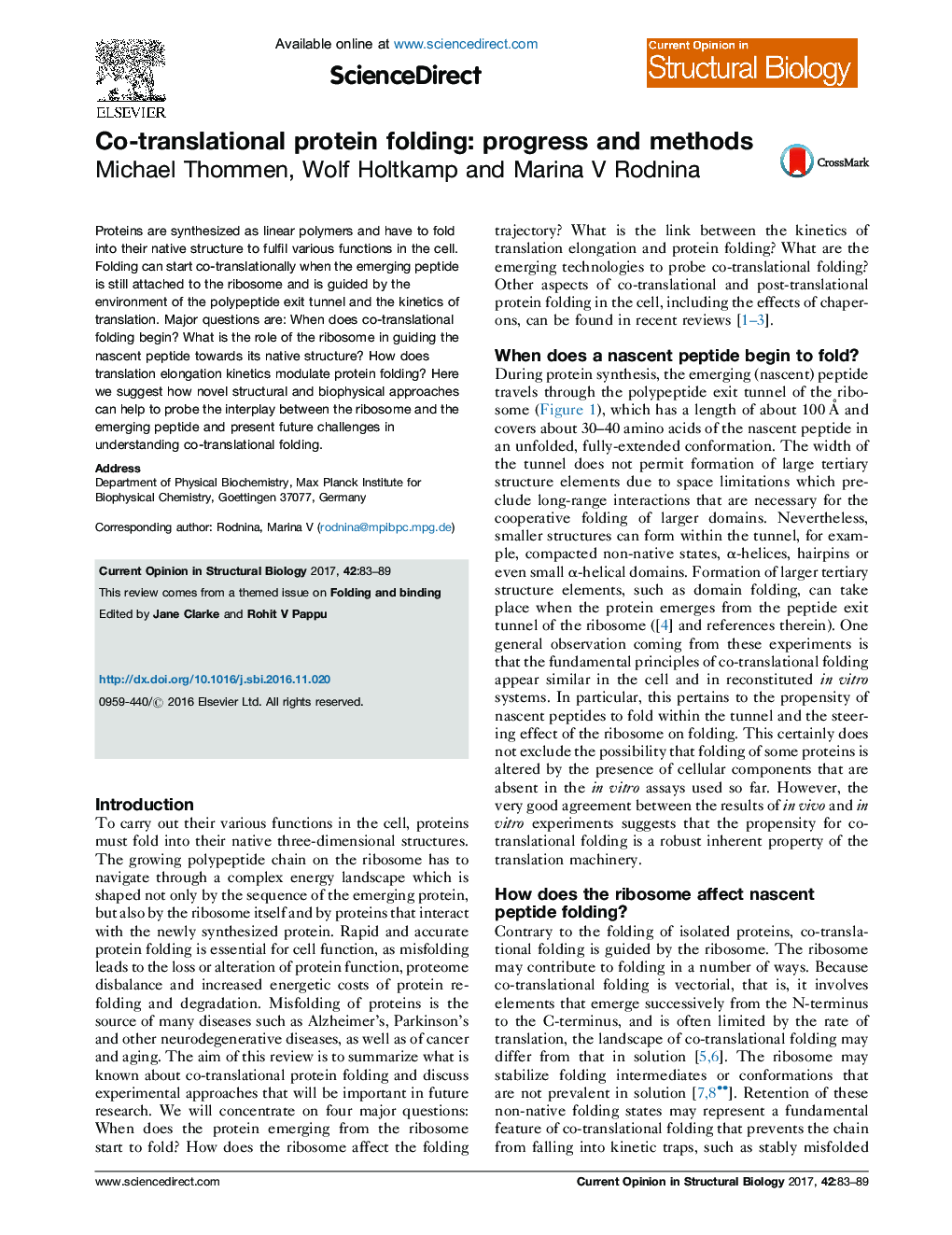| Article ID | Journal | Published Year | Pages | File Type |
|---|---|---|---|---|
| 5510877 | Current Opinion in Structural Biology | 2017 | 7 Pages |
Abstract
Proteins are synthesized as linear polymers and have to fold into their native structure to fulfil various functions in the cell. Folding can start co-translationally when the emerging peptide is still attached to the ribosome and is guided by the environment of the polypeptide exit tunnel and the kinetics of translation. Major questions are: When does co-translational folding begin? What is the role of the ribosome in guiding the nascent peptide towards its native structure? How does translation elongation kinetics modulate protein folding? Here we suggest how novel structural and biophysical approaches can help to probe the interplay between the ribosome and the emerging peptide and present future challenges in understanding co-translational folding.
Related Topics
Life Sciences
Biochemistry, Genetics and Molecular Biology
Biochemistry
Authors
Michael Thommen, Wolf Holtkamp, Marina V Rodnina,
